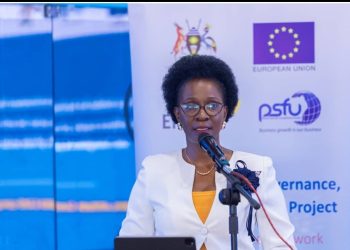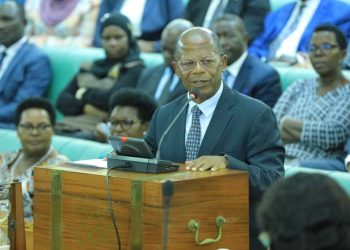Cabinet has approved the proposed construction of a road from Uganda to Ethiopia, state minister for foreign affairs Henry Okello Oryem has said.
The minister said Cabinet had also directed the works and transport ministry to undertake feasibility studies for the proposed project intended to link the two countries.
“We want to build a road from Uganda to Ethiopia, to facilitate integration and trade. The President is committed to this project,” Oryem said.
He made the remarks during the dinner after the third Ethio-Uganda joint ministerial commission meeting at the residence of the Ethiopian ambassador in Kololo, a city suburb, on Thursday.
The minister said the relevant ministries in both countries are working to realize the directives of the leaders in the two countries on integration, trade, and investment. Museveni mooted the idea of building a road from Uganda to Ethiopia through Karamoja and Kenya during the 2017 summit on River Nile at State House, Entebbe.
The President said joint projects between countries in the Nile basin, like infrastructure, would ease pressure on the river and facilitate transformation and industrialization of the region.
The minister also said Uganda and DR Congo are also exploring the possibility of building a bridge across River Semliki to facilitate trade. In addition, Oryem said Uganda intends to build another road to South Sudan.
“These projects will bring us closer to each other,” the minister said.
Efforts to get comments from the works and transport ministers were futile as calls to their known telephone numbers went unanswered. However, Susan Kataike, the spokesperson at the works and transport ministry, said:
“I know about that project (Uganda- Ethiopia road), but I do not have information about it now.”
River Nile At the dinner, the ambassador, Alemtsehay Meseret, commended Uganda for the role the country continues to play in promoting equitable utilization of River Nile.
The envoy said Uganda, which hosts the Nile Basin Initiative (NBI), continues to play a pivotal role in promoting the implementation of the Co-operative Framework Agreement for the Nile.
The agreement, which seeks to promote equitable use and access to the Nile waters, replaced the 1929 and 1959 colonial treaties that required countries in the upstream to seek permission from Egypt before undertaking any projects on the trans-boundary resource.
NBI is an intergovernmental partnership of 10 Nile Basin countries: Burundi, DR Congo, Egypt, Ethiopia, Kenya, Rwanda, South Sudan, Sudan, Tanzania, and Uganda. Eritrea participates as an observer.





























































